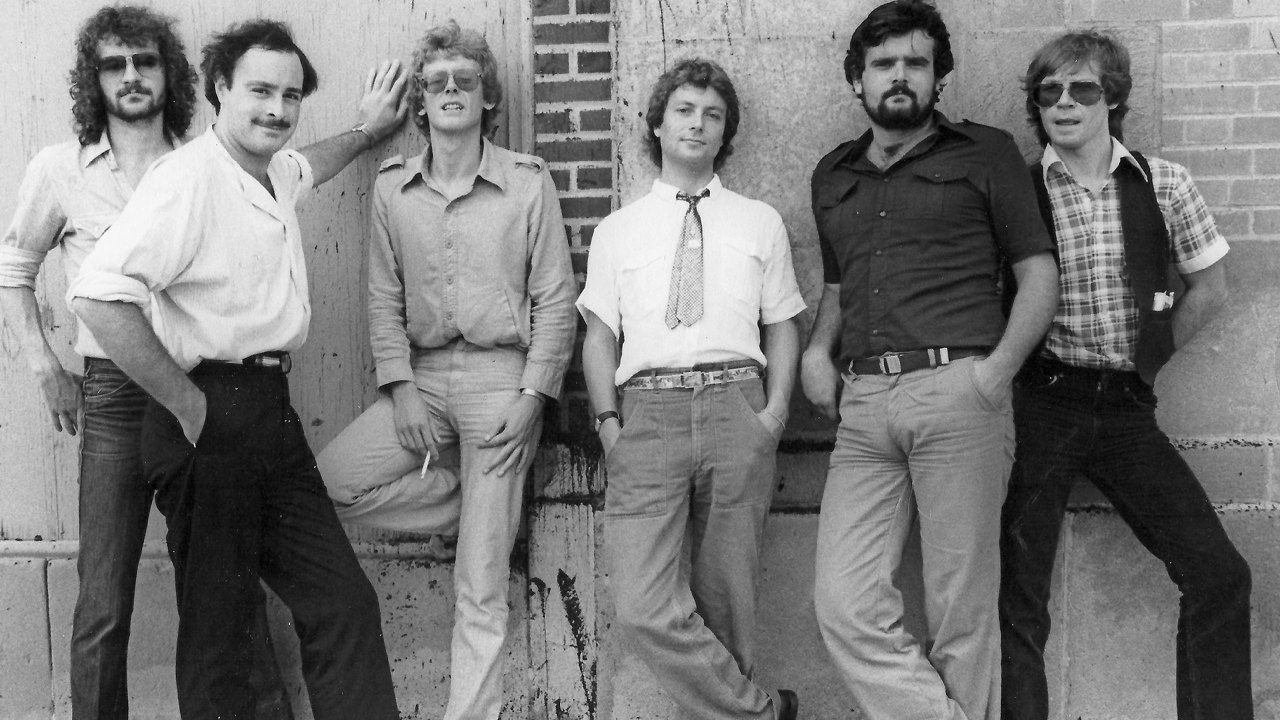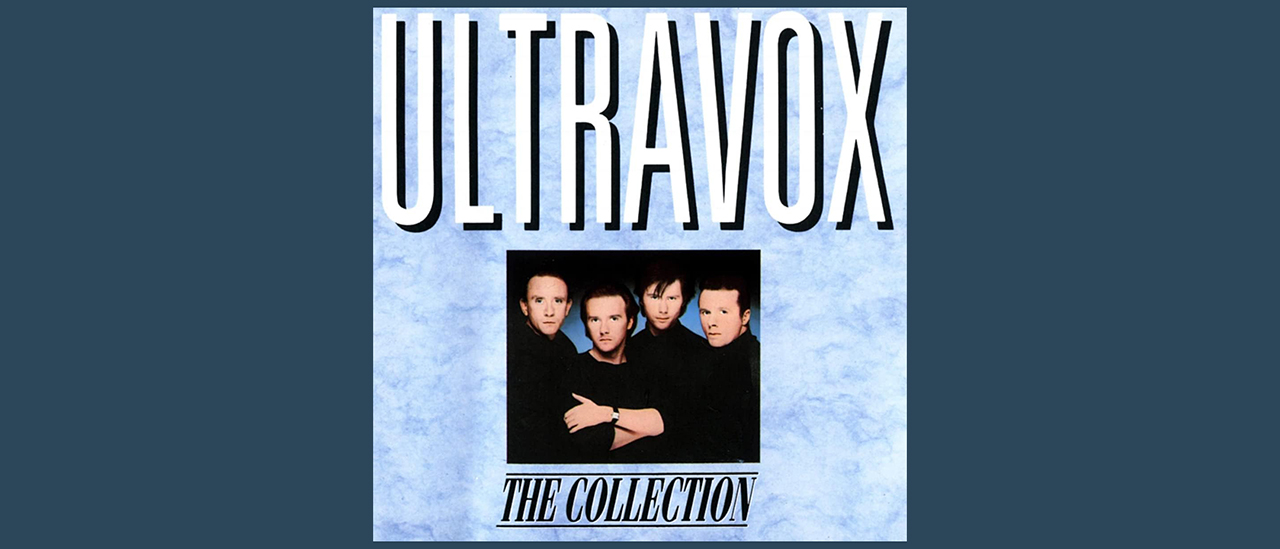“Well-structured harmonies were important and we liked to be quite artsy… but there was pressure to become more and more commercial”: The tale of prog-tinged City Boy, who landed a hit pop-rock single and never recovered

In 1974 prog-influenced sextet City Boy began producing promising music with strong melodic, harmonic and instrumental components. But after an unpredicted hit single four years later, their career began to spiral into an undeserved demise. In 2015 guitarist Mike Slamer told Prog about the trap they’d fallen into.
Back in the days when the format still mattered, success in the singles market was a near-priceless commodity. A surprise hit and an appearance on Top Of The Pops could add a zero or two to a rock group’s sales figures. The flipside, of course, was that such exposure was equally likely to tarnish their credibility.
The chasm between ‘respected artist’ and ‘unknown quantity’ is vast, and suspicion runs deep. For a group such as Yes, with a long-standing and hard-earned respect, the 90125 era is now viewed by dispassionate observers as a blip; an endearing, fascinating distraction from the norm. And yet, by contrast, even almost three decades on, It Bites are still attempting to live down their Top 10 hit Calling All The Heroes.
Regrettably, City Boy fall into the latter category. Mention their name to the average rock fan and they’ll probably chirrup, “Ah yes, I remember their hit. Now how did it go again?”
Just like It Bites, City Boy faced a mountainous hurdle – the sheer variety of their music. With hard rock, prog, AOR and even pop all residing within their melting pot, pinning them down into one particular style was nigh on impossible.
Guitarist Mike Slamer was raised on progressive music. “My earliest albums were by Jethro Tull, Blodwyn Pig and the Groundhogs – bands that did exactly what they wanted,” he explains. “Each of them had a very strong foundation in the blues, but then they spread their wings and went on to make some exciting and very unique music.”
Though they never fully embraced prog, over the course of seven fascinating studio albums, City Boy would navigate a similarly independent course. These days there’s a tendency to bracket them with the intelligent, suave and defiantly eclectic art-rock of 10cc or, at a push, Queen.
Sign up below to get the latest from Prog, plus exclusive special offers, direct to your inbox!
“That’s a comparison I’ll encourage,” chuckles Slamer, “but it’s not without reason. We did have four really good singers. Well-structured harmonies were very important to us and we liked to be quite artsy, dressing up onstage and being a little flamboyant.”
He believes that the inability to categorise their music was both a blessing and a curse. “During the band’s lifespan, our record companies exerted a lot of pressure to become more and more commercial,” he says. “In some ways that stifled the writing, but it also made us a little more disciplined in our focus.”
Mutt Lange was a really interesting, creative person… as a brand new band, we were lab rats
Much like Genesis, who found one another at Charterhouse, City Boy had roots in a fee-paying public school where singer Lol Mason and singer/guitarist Steve Broughton first met. The line-up solidified in 1973 when Slamer and original drummer Roger Kent joined the nucleus of an existing Birmingham-based acoustic folk unit called Back In The Band. That group already featured Mason, Broughton, keyboard player/singer Max Thomas and vocalist/bass player Chris Dunn.
“It was the fact they had a manager that attracted me to joining,” recalls Slamer. In actuality, said manager was an inexperienced Swiss hairdresser by the name of René Sauter, but his bargaining skills were sufficient to blag the group a record deal with Phonogram. It’s here that a certain Robert John Lange, better known as ‘Mutt’, enters the picture. The Zambian had just arrived in England and City Boy were the first group he worked with. It was a long-term arrangement, Lange effectively becoming the line‑up’s unofficial seventh member.
Mutt was destined to become a celebrated name in the production world, and these days the multi-millionaire is an extremely private individual, shunning the press and protecting his privacy after a now-terminated marriage to the country-pop chanteuse Shania Twain. But back then, City Boy knew Lange in far less salubrious circumstances.
“When we met Mutt to discuss working together, he was brand new to London and had rented a little apartment above a dental surgery,” recalls Slamer. “The distant hum of drills was the background to our conversation. But he was a really interesting, creative person who constantly tried out new ideas. In a way, as a brand new band, we were lab rats. Mutt had produced records before in South Africa, but there were new ideas inside of him bursting out.”
Lange is known to be a hard taskmaster in the studio, and Slamer acknowledges that his demands could be “extremely challenging”. However, the benefits far outweighed any sense of frustration. “Back then Mutt would work 20-hour days, continuing long after we had gone home,” he says. “Then he would meditate and do yoga to try and get his energy back.”
The albums City Boy and Dinner At The Ritz were both released in 1976, a whirlwind year for the band. Smart, incisive and beautifully crafted, the latter is a bona fide masterpiece. Longer, multi-part tracks such as State Secrets – A Thriller had become a cornerstone of City Boy’s oeuvre, and by the time of the group’s third album, Young Men Gone West, their sheer ingenuity was almost beginning to sound casual.
A couple of guys in the band had a taste of the high life, so to speak, and they wanted more
“City Boy were not your standard Top Of The Pops fodder, that’s for sure,” says Def Leppard singer Joe Elliott. “I saw them at the Top Rank in Sheffield on the tour for the Dinner At The Ritz album. They were very theatrical and quite posh, sort of like Supertramp playing a West End theatre. It was all a bit mad, but very entertaining! They had a couple of great songs but my favourite was Deadly Delicious, which I guess you would call pop-prog – all spiky guitars and buggy-eyed singing.”
In later years, Elliott has admitted that it was Lange’s work with City Boy, and not the platinum-selling records made with AC/DC, that won his band over. “We used one of their amps once on the Pyromania sessions as Mutt had worked with them and knew they had better amps than we did at the time,” the Leppard frontman reveals.
Creatively speaking, City Boy were on a roll. However, as chart success remained elusive, nerves began to creep into the Phonogram boardroom. “The record company had provided a lot of tour support and paying Mutt to produce your albums doesn’t come cheap,” Slamer reasons. “It was only fair that they’d want some commercial payback.”
The band had a new song called Turn On To Jesus that the label believed had hit potential, though they were worried about its subject matter. One quick rewrite later and a slice of keyboard-enhanced bubblegum called 5.7.0.5. introduced City Boy into the Top 10 in the summer of ’78. Its parent album, Book Early, was also more commercially orientated than usual.
“Pop stardom was great and everyone’s lifestyle changed – there was money to put on a bigger and better show – but it also brought problems,” Slamer admits. “A couple of guys in the band had a taste of the high life, so to speak, and they wanted more. They began trying to push the band further in that direction, which was the wrong thing to do as 5.7.0.5. wasn’t written with the charts in mind. But they wanted to do it again, and again. Within a year or two we wound up in a very confused state.”
1979’s The Day The Earth Caught Fire was the last album released by a six-piece City Boy. Although there were arguments over direction that would cause Steve Broughton and Chris Dunn to quit, the band’s classic permutation signed off with a winning mix of first-rate musicianship, Queen-esque vocal harmonies and luxurious arrangements – its swansong, Ambition, lasted for 12 minutes and was broken down into four suites.
After so many years together, if felt like our time had run out… splitting up was very disappointing
“If you asked me to recommend a City Boy album to a fan of progressive rock, The Day The Earth Caught Fire or Dinner At The Ritz would be great starting points. They paint a very accurate picture of what we were about,” says Slamer.
The four-piece version went on to simplify their sound – some might prefer the term ‘dumbed-down’ – with Heads Are Rolling, their first Lange-less album, in 1980. “I couldn’t dispute that statement,” responds Slamer, “but some of my favourite tracks were recorded as a quartet. Speaking as a rock guitarist, songs like Bloody Sunday were adventurous and full of harmony and power. They were everything I wanted to play.”
Alas, 1981’s under-promoted It’s Personal would be their final album. “We redeemed ourselves with that one,” Slamer says; but even today some fans remain unaware of its existence. No surprise, then, that when the time came to seek a new record deal in 1982, there were no takers. “After so many years together, if felt like our time had run out, and splitting up the band was very disappointing,” recalls Slamer sadly.
Within nine months the guitarist would relocate to America and form a new group called Streets with ex-Kansas singer Steve Walsh, resulting in two cult AOR albums. Slamer remains active in the melodic rock scene, though around the millennium’s turn he returned to more prog-orientated waters with another Kansas member, bassist Billy Greer, in Seventh Key.
However, it’s embarrassing to divulge that in 1982, City Boy’s former drummer/vocalist Roy Ward was the lead session singer on The Lion Sleeps Tonight, a chart-topper from the novelty pop group Tight Fit. Cue the instant torpedoing of all prog-rock credentials right there. “Yeah, perhaps Roy should have kept a little quieter about that one!” Slamer says.
He’s enthused about the renaissance in the popularity of progressive rock, though more in principle than anything else. “I couldn’t name the current generation of prog bands that I listen to,” he admits, “and that’s because the only time I’m exposed to music of any sort is when I’m in the car, so it all depends on which station I’m tuned into.”
A couple of the guys still have a bad taste in their mouths over what happened back then
More than three decades since their demise, the name of City Boy has fallen into obscurity, many of the group’s records are out of print – a fact that’s been somewhat remedied by the reissuing of City Boy, Dinner At The Ritz, Young Men Go West and Book Early as expanded double-disc editions. However, a reunion has yet to occur, and Slamer reckons the likelihood of such a comeback is extremely slim.
“Without going into detail or revealing their names, a couple of the guys still have a bad taste in their mouths over what happened back then,” he reveals. “And for the rest of us, it’s all so many years ago that we’ve long since moved on.”

Dave Ling was a co-founder of Classic Rock magazine. His words have appeared in a variety of music publications, including RAW, Kerrang!, Metal Hammer, Prog, Rock Candy, Fireworks and Sounds. Dave’s life was shaped in 1974 through the purchase of a copy of Sweet’s album ‘Sweet Fanny Adams’, along with early gig experiences from Status Quo, Rush, Iron Maiden, AC/DC, Yes and Queen. As a lifelong season ticket holder of Crystal Palace FC, he is completely incapable of uttering the word ‘Br***ton’.



